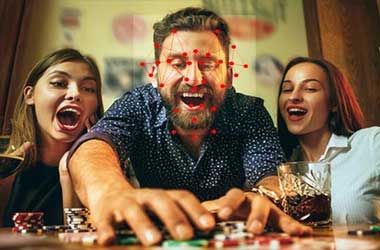 A crowd comprised of almost a hundred casino industry representatives—executives, lawyers, and industry analysts were present in a day-long primer at the UNLV Boyd School of Law to learn more about machine learning, facial recognition and artificial intelligence (AI), their sights set on determining how they can make use of the new tech to improve the casino experience for the ordinary punter.
A crowd comprised of almost a hundred casino industry representatives—executives, lawyers, and industry analysts were present in a day-long primer at the UNLV Boyd School of Law to learn more about machine learning, facial recognition and artificial intelligence (AI), their sights set on determining how they can make use of the new tech to improve the casino experience for the ordinary punter.
Many of the applications of these new technologies center on improving customer service. By automatically recognizing customers through facial recognition software, casinos will be able to tailor their services to those customers in real time.
Facial recognition could expedite the logging-in process on slot machines equipped with cameras, which would also make it easier for the casino to detect fraud, enforce bans on players, and recognize new players, targeting them for customer loyalty programs.
Facial recognition would also help pit managers by reducing their workload keeping track of players in table games by their clothes, instead letting the cameras identify the customers for them helping them focus more on preventing fraud.
AP Archive
New Tech to Help Problem Gamblers
The new tech is expected to make the biggest impact in addressing the issue of problem gambling, defined as gambling in addictive or unhealthy patterns that adversely impact the gambler’s life. Casinos have long sought a way to determine problem gambling behaviors in their customers, to shed the negative image of the industry. However, diagnosing such behaviors can be difficult.
Machine learning has been touted as the next step in helping problem gamblers before they hurt themselves. However, experts in machine learning and facial recognition note that the field is in its infancy, and as such, relying on them to make such impactful judgments may be misguided.
Alan Feldman, a Distinguished Fellow in Responsible Gambling at UNLV’s International Gaming Institute and former executive at MGM Resorts International said that facial recognition can only recognize individuals effectively, but have yet to reach a point where they would be able to detect patterns that could be used to detect problem gamblers.
Feldman also warned that, with personal data and privacy laws, individuals may choose to exclude themselves from facial recognition systems if they are made aware of their problematic behaviors. Even if casinos make use of the new tech, it is unclear whether they are equipped to safeguard the massive droves of data they collect from evil actors.
Data breaches are a serious risk, and since casinos are information-intensive, the troves of data they will have will likely be targets of malicious actors. Before collecting data, casinos must ensure that they have the infrastructure to handle and protect such troves.

